Cuyamugue Institute Advisory Committee
What do we mean by Advisory Committee? Researchers, professionals and associates who bring unique knowledge and skills which augment the knowledge and skills of our formal board of directors in order to more effectively guide the organization.
The Cuyamungue Institute is very fortunate to have the following advisors — they have joined us to support our mission by sharing with us their insights and experiences in developing needed and effective programs. Thank you for your support!
Thomas Riccio Ph.D
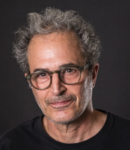
Professor of Visual and Performing Arts, University of Texas, Dallas
Riccio’s theatre work has taken him around the world. As Professor of Theatre at the University of Alaska, Fairbanks and Director of Tuma Theater, an Alaska Native performance group, he devised and directed several performances. He documented, revived, and re-imagined indigenous Alaska Native performance vocabularies and expressions for application in a contemporary context, with over thirty traditional Yup’ik, Inupiat, and Athabaskan villages. This work served as a template, combining ethnography, drama therapy, aesthetic production, activism, education, and cultural development, for work with numerous indigenous groups worldwide. He continued this work in ritual and indigenous performance, creating performances and conducting research in South Africa, Zambia, Kenya, Burkina Faso, Ethiopia, Tanzania, Russia, Alaska, Korea, India, Nepal, with the !Xuu Bushmen and the Miao of China. The Republic of Sakha in Siberia declared Riccio a “Cultural Hero.”
Christine VanPool, Ph.D

Associate Professor of Anthropology, University of Missouri
Says Christine: “Like anthropology, my research is multifaceted. I explore broad anthropological questions derived from theory that use a variety of means including library, museum, and field research. Primary among my questions is how evolutionary theory can be integrated with praxis theory (agency-based approaches) to better understand human behavior, especially symbolic and religious behavior.”
Christine’s work with her husband Todd, a cognitive anthropologist who also teaches at the University of Missouri, encompasses archeological field work at ancient sites in MesoAmerican and the American Southwest. They have presented and published at several academic venues. She is the author of Signs of the Casas Grandes Shamans and with Todd VanPool, Religion in the Prehispanic Southwest.
Tony Hull Ph.D
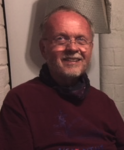
Adjunct Professor of Physics and Astronomy at University of New Mexico
Tony Hull is the architect of a NASA study for a large space observatory to continue research in ultraviolet astrophysics. He led the team of 60 that polished the mirrors of the newly launched James Webb Space Telescope, and served as NASA technologist for Terrestrial Planet Finder, a spaceborne mission for direct imaging of exoplanets. In cultural astronomy, he served as co-investigator of an extended archaeology research project in Chaco Culture National Historical Park, and researches methods used by early cultures to accurately determine the cardinal directions, as well as research methods to avoid false alignments. Tony designed and installed a Gnomon marking the exact date of the equinox and the true E-W azimuth at the Cuyamungue Institute. He studied engineering and astrophysics at the University of Pennsylvania, and archaeology at UCLA. He lectures and travels widely.
Todd VanPool Ph.D
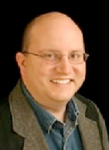
Chair, Professor of Anthropology, University of Missouri–Columbia
I study the evolution and cognitive structure of religion and its relationship to pilgrimages, social status, economic organization, and cultural stability and change. Much of my research has focused on the archaeology of the ancient North American Southwest, especially the late prehistoric occupation of the Casas Grandes region of Chihuahua, Mexico, and southernmost New Mexico. With Gordon Rakita (University of North Florida) and my wife and colleague, Christine VanPool, I have conducted field work at 76 Draw, a Casas Grandes settlement near Deming, New Mexico since 2009. An emerging focus of my research is cross-cultural patterns in the use of trance-based religious experiences. Along with Christine VanPool, I am exploring how trance can be initiated with and without entheogens.
Frederick M. Smith Ph.D
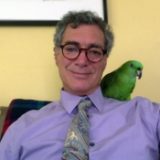
Professor Emeritus, Sanskrit and Classical Indian Religions, University of Iowa
Fred Smith spent sixteen years in India, and a long career at the Department of Asian and Slavic Languages and Literatures, a unit of the Division of World Languages, Literatures and Cultures in the College of Liberal Arts and Sciences. His vigorous research program includes major forays into premodern North Indian devotional philosophy and poetry, deity and spirit possession in South Asia, Indian medical literature and the practice of Ayurveda, Sanskrit literature and the epic Mahabharata, the history and practice of yoga, and continuing investigation into the wider spectrum of India’s ritual performance. His eye has always been diachronic, considering ritual, practice, or text over centuries or millennia. A key interest is the way specific, religious, cultural, and literary practices constitute and define Indian historical tradition. Fred’s 2006 book is The Self Possessed, Columbia University Press.
Geert Mayer Ph.D
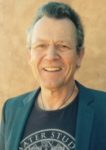
Associate Professor in Neurology at the Philipps University in Marburg and former Director of the Hephata Klinik in Schwalmstadt-Treysa, Germany
For 25 years Geert worked with sleep disorders, specializing in psychiatry, psychotherapy and neurology, and degrees in German and European sleep medicine, epilepsy and EEG. He is a member of several national and international scientific societies, serving as head of the “Task Force Polysomnography” for the German Society for Neurophysiology and Imaging, the “Task Force Sleep Medicine” of the German Neurological Society and the “Clinical Committee” of the European Sleep Research Society. He co-founded the European Narcolepsy Network, as well as the “International RBD Study Group”. He graduated from the Georg-August University in Göttingen, Germany where he also did his doctorate and habilitation. He published many articles in peer reviewed scientific journals and books and is a frequent speaker at national and international scientific meetings.
Lawson Malnory
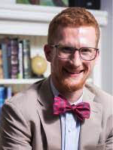
Ethnomusicologist
Lawson is a musician, ethnomusicologist, arts manager, singer-songwriter, filmmaker, and percussionist trained in orchestral, popular, and world music. Lawson earned his MA in Ethnomusicolofy at Arizona State University, conducting research on the relationship between sound and altered states of consciousness. He finds the study of Spanish deepens his perspective on the cultures and music of Latin American countries, having studied in Cuba and Mexico. He has participated in the Cuyamungue Institute conferences and rituals since October 2020.
Brian Tucker
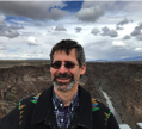
Cross Cultural Spiritual Advisor
As Spiritual Director with the Guild for Spiritual Guidance, Brian organized and facilitated Interfaith events for the Vincentian Renewal Center in Plainsboro, NJ, and studied Vedanta with monastic monk Swami Amarnathananda of the Bharat Sevashram Sangha (NJ chapter) for 15 years. He consults both non-profit and for-profit organizations, individuals and organizations, on technology. His book, Generations of War: A Family’s History of World War II examines generational trauma. Brian blogs on integrating spirituality in the workplace, Social Justice, Big History, Cosmology, Vedanta, Torah, Yoga, Ecstatic Trance Postures, Neurofeedback, Meditation, to increase awareness of our sacred Cosmos and imagine a world of universal love and justice for all at http://interspirituality.org
Barbara Cox
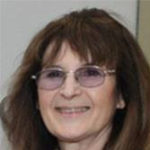
Founder & Principal, Photokunst.com
Barbara works with fine art, cause-oriented photographers. Through her agency Photokunst she helps shape careers and market their work in art books, exhibits, and presentations for publishers, galleries, museums, collectors and events worldwide. Her fine eye and long experience in the power of imagery to tell a story and convey a depth of emotion and meaning is highly valued in photo journalism and photo art, as she consults worldwide for archival, institutional, and private art collections, exhibitions, publications, film, social media, and content delivery in a wide array of mediums.
Belinda Gore Ph.D
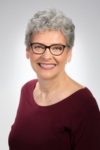
Former President of Cuyamungue Institute
Belinda was a close friend and neighbor of Dr. Goodman, and teacher of Ecstatic Trance Postures (ETP) for over forty years. Her books Ecstatic Body Postures: An Alternate Reality Workbook and The Ecstatic Experience: Healing Postures for Spirit Journeys serve as the Institute’s ‘hand books’ and original canon in the practice of Ecstatic Trance Postures. Belinda is the founder and co-director of the Enneagram Institute of Central Ohio and a leadership consultant and coach. All of her work emerges from a deeply held vision of supporting the evolution of consciousness in all aspects of life. As a therapist, she uses ETP for select clients to address issues around addiction.
